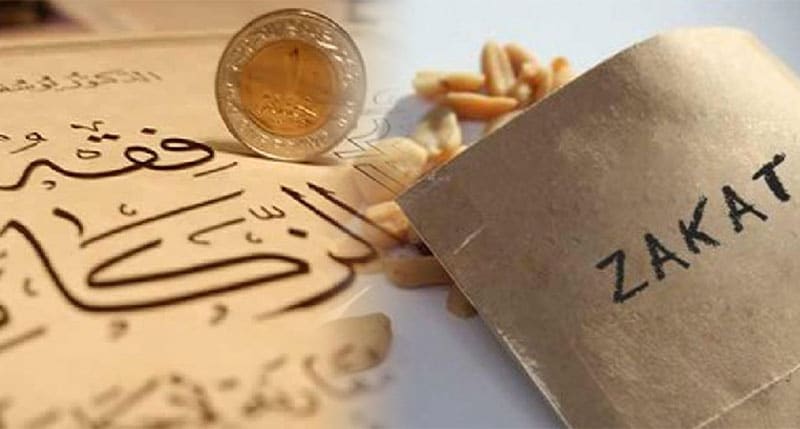Congratulations to the graduating class of 2020. We are so proud of all your accomplishments. You have made your family and the AIMOM Family Proud. We ask Allah to continue showering His blessing on you all….
CONGRATULATIONS
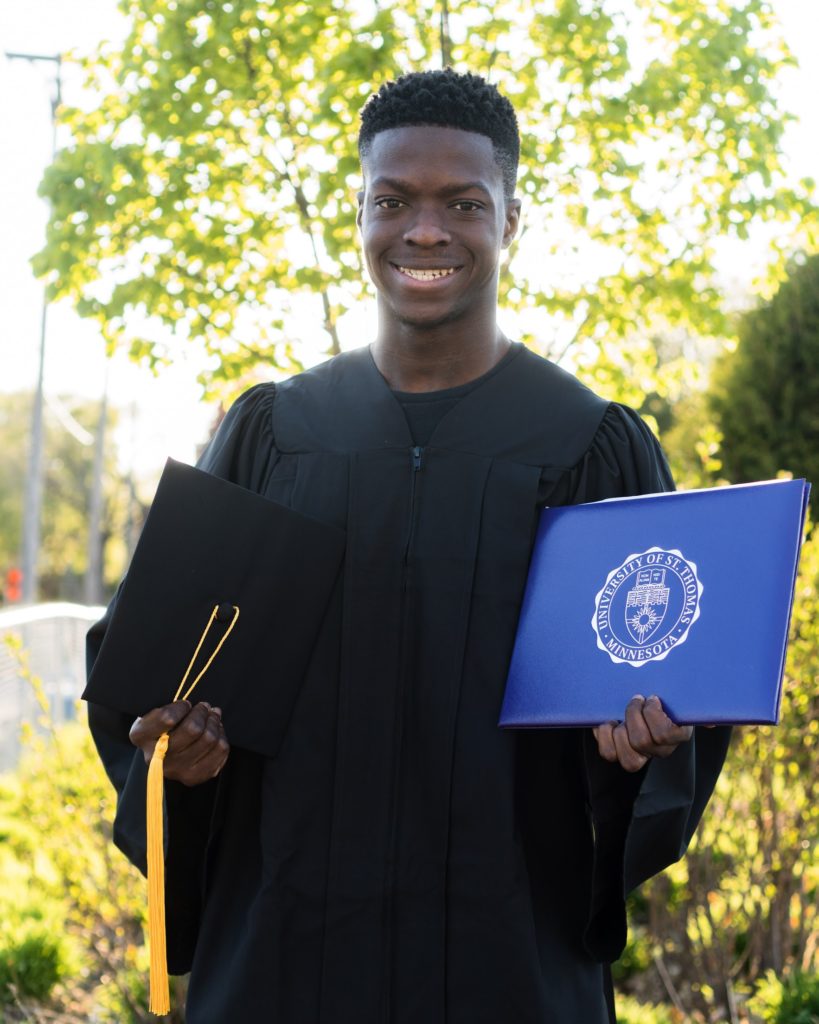
Gafar Amuda
College: University of St. Thomas – Minnesota
Major: Computer Science
Minor: Applied Statistics with honor
GPA: 3.3
Gafar Amuda is the oldest of three children. He is currently employed by US Bank as an Information Security Specialist.
He moved to Minnesota with his family at the age of five. Graduated high school as the 7th best student with a GPA of 4.7. Earned different scholarships through different organizations – Optimist Club, US Bank, Wallen Foundation, and CAIR of Minnesota. Graduated without any school loan. He tutored as a computer science tutor for his school and also for St. Paul Public Libraries on a weekly basis.
Member of Muslim Youth Awareness (MYA).
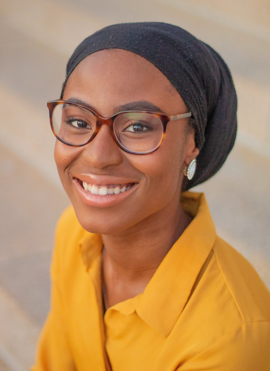
Aisha Adedayo
North High School
GPA: 4.3281
Beginning her college journey InshaAllah in Fall. Gained admission into one of the best universities in the country—Washington University St. Louis
Major: (BS/BA in Healthcare Administration (Pre-Med Track).
Aisha Adedayo was born in Nigeria, moved to the United States with her family at the age of five. She is the oldest of four children.
She belongs to different committees during her school years:
- Chaired the advertising committee for student council and represented her school at several regional and state conferences
- Started a relay for life team during sophomore years and joined the planning committee for the event
- Founded the junior optimist club in junior year, a club that promotes self-development, community service, and creating a more positive school environment
- Recruited to join the polar portraits team and became co-president during her senior year
- Had the opportunity to serve on the District 622 advisory board for both junior and senior year where she represented North high students on different district policies
- Co-founders of MYA (Muslim Youth Awareness) where she serves as the group President till date
- Founder of the NCNMO Youth Forum a youth group that includes youth representatives from across the 50 states to advocate for youth issues and partake in NCNMO events planning committee
Aisha’s love for art had led her to win several prestigious art awards during her junior year and opened up many opportunities, including an all-expense-paid trip to Washington, D.C. for winning the congressional art competition.

Zainab Lolade Agunbiade
Carl L. Carlson School of Management
College: University of Minnesota – Twin Cities
B.S.B. Finance and Risk Management Insurance
GPA: 3.4
Lolade Agunbiade is the second child of three children. She had started her own Real Estate business while in college. She likes to travel and learn about new cultures and see different places. Her favorite Nigerian Food is Iyan with red soup (Omi obe) and Ogbono. She enjoys watching movies, sports, and learning about real estate and entrepreneurship.
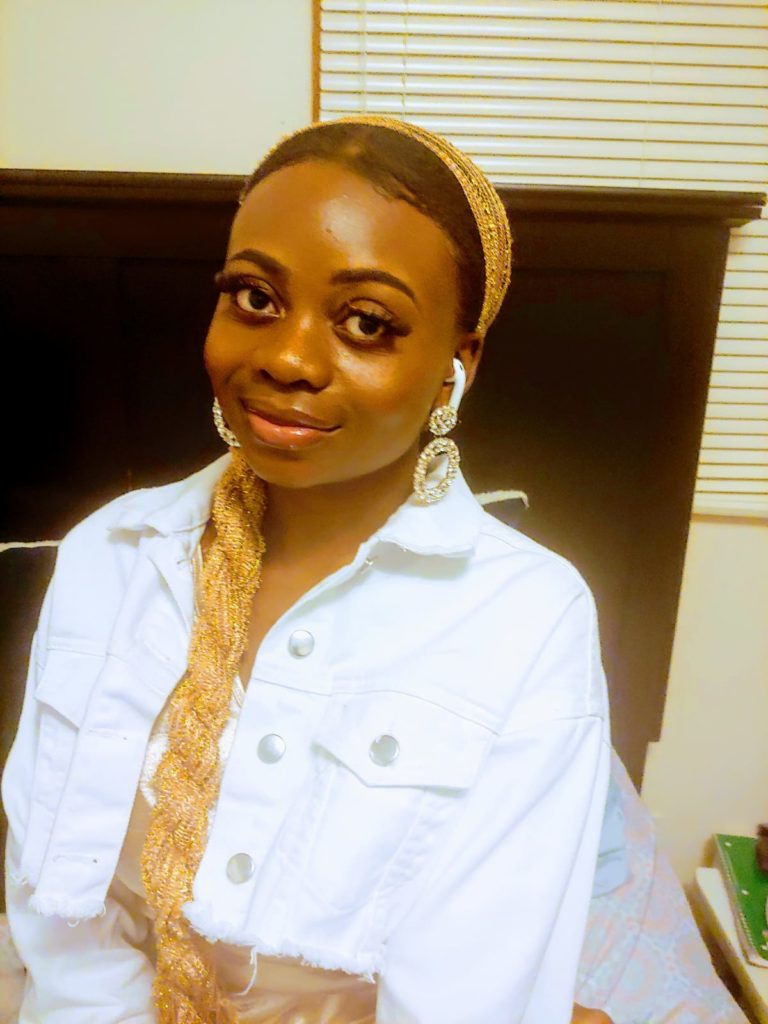
Bisola Yakoub
School: Champlin Park High School
GPA: 3.56
Admitted to the University of Minnesota – Twin Cities
Major: Law
Bisola Yakoub started playing soccer at the age of 6 years old. She loves to model with the help of a company based in Eagan MN. She participated in gymnastics together with her sister in Twin City Twister in Champlin.
She also participated in the school track & field. She was a member of the Leo Club. She received numerous awards from different organizations like IB and Jefferson. She was selected as the student of the month from her school.
Bisola is a very caring, sweet, and determined girl. She enjoys being around babies and kids. With the help of Allah and her efforts, her junior brother now prays five daily prayers.
She is the current Muslim Youth Awareness (MYA) Vice President.
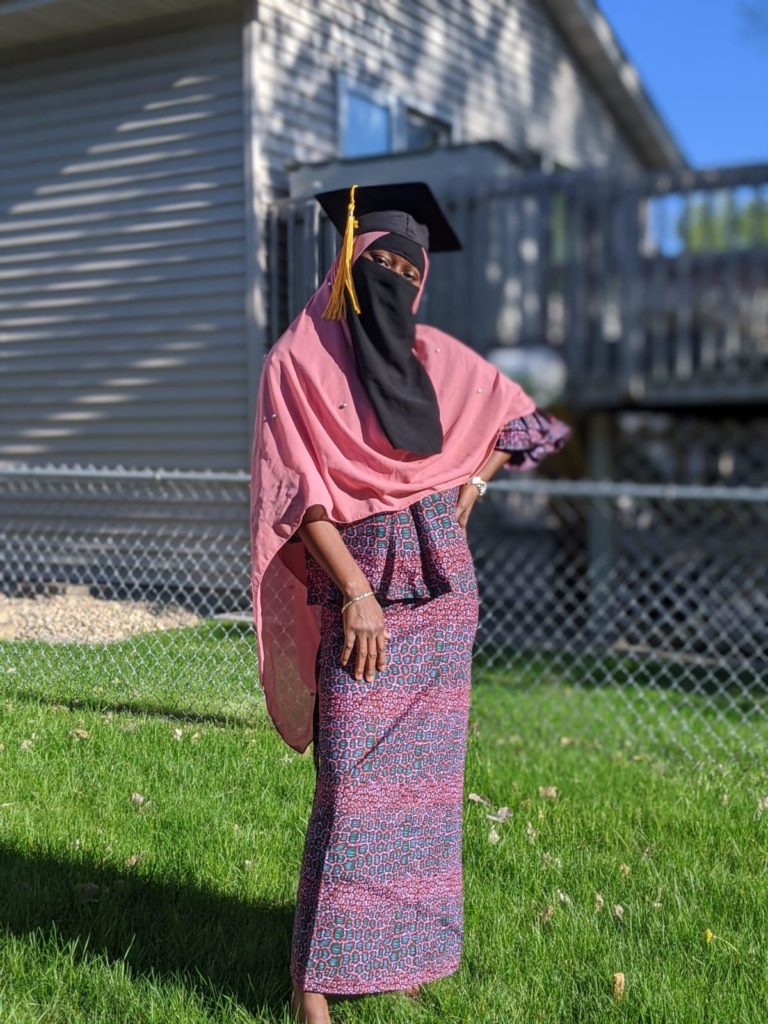
Nafisat Souli
College: Anoka Technical College
GPA: 3.00
Major: LPN-BSN
Nafisat was born in Nigeria but grew up in Togo where she had the opportunity to attend French school for 12 years. She moved to America in 2012. Speaks four languages (Yoruba, Ewe, French, English (which she learned upon arriving in America 2012 Alhamdulillah), and a little bit of Arabic Language.
Alhamdulillah, she has been married for almost three years to an amazing, God-fearing and supportive husband with a beautiful 19 months old son named Faisal Allahuma barik Aameen. She values her religion so dearly. She appreciates meaningful relationships that bring her closer to her Creator. In her free time, she loves to learn more about her religion.
She loves nature as well as photography as a way of capturing beautiful moments and connecting pictures to life. She enjoys seeking beneficial knowledge regarding her religion, and spending quality time with family especially with her son. She had been blessed enough to participate in different Qu’ran competitions and awarded some prizes Allahuma Barik Aameen.
Nafisat is a dedicated and committed member of our community. She teaches Quran and Islamic Studies in our weekend Islamic school. She is also a core member of our community events planning committee. A member of the Muslim Youth Awareness advisory committee.
We ask Allah to reward her and continue to shower her with more blessings. Amin

Taoheed Bayo
School: University of Minnesota
Major: Actuarial Science
Graduated with a Bachelor of Science in mathematics with a minor in risk management, statistics, and management.
Outside of school, he works part-time as a banker and a freelance model. Some of his achievements in the modeling world include features with paper magazines and Vogue Italia. Along with these works, he has an art exhibition coming up at the University of Minnesota, Twin Cities with a runtime from August 26 – November 1, 2020.
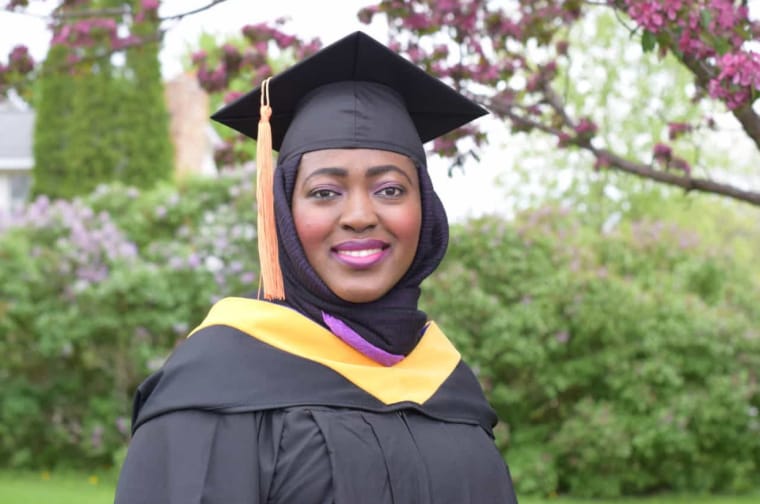
Yekeenat Giwa
School: St. Catherine University
GPA: 3.75
Major: Bachelor of Science in Nursing
Career: Nursing
Yekeenat Giwa has her first degree in Public Administration from Ahmadu Bello University (2010), Zaria Nigeria. She is a member of the Nigeria Institute of Management, 2011. She worked with the Voice of Nigeria before moving to the United States in 2013.
She attended Century College and earned herself the membership of phi theta kappa honors society, 2018. She proceeded to St. Catherine University and was admitted into the Nursing Program in 2018 where she became a member of the Honors Society of Phi Theta Phi, 2019. While in school, she was on the dean’s list for the most of her semesters.
Yekeenat is a mom of two kids and a loving wife. She is a quiet lady who loves to explore, so she gets excited every time she has to do research. She enjoys traveling and reading.
Her favorite slogan “……..reflect, allow surprises, be hopeful, don’t think less of yourself, and trust Allah!”
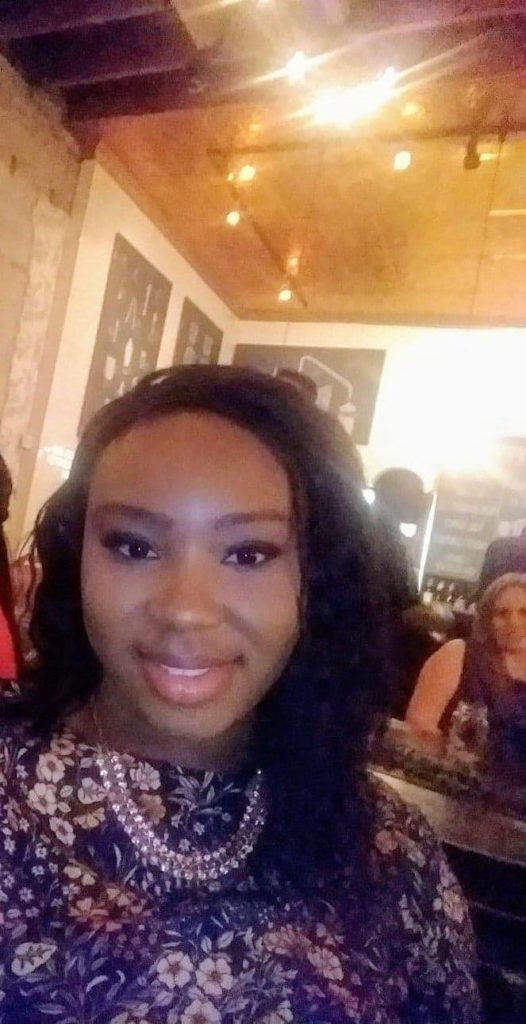
Mutiat O. Momoh
School: Minnesota State University, Mankato
Major: Psychology and Child Development Studies, B.S.
Cumulative GPA: 3.7
Honors: Magna Cum Laude, Dean’s list all semesters
Mutiat believes with hard work, dedication, and perseverance anything can be accomplished. Nothing comes easy in life; you must be consistent and work hard for what you want to achieve. She also believes that keeping God first and dedication are keys to success.
She chose to study psychology because she wants to help children to overcome challenges with trauma, adverse childhood events, anxiety, depression, PTSD, and other psychological disorders using psychotherapy and counseling. After graduation, she hopes to continue her education in the field of clinical counseling psychology with a specialization in trauma and cognitive behavioral therapy.
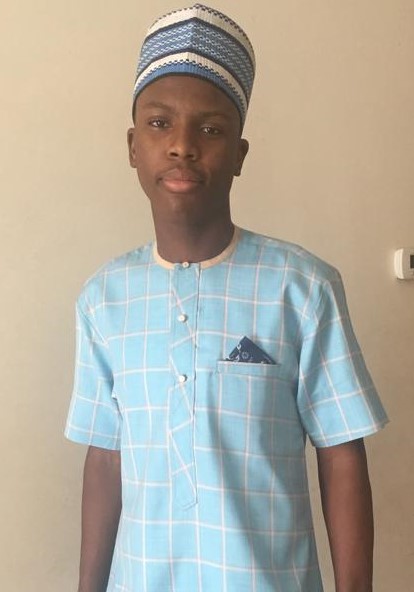
Idris Adekunle Abatan
School: Champlin Park High school
GPA: 3.91
Admission: University of Minnesota Twin Cities (CBS)
Major: Biology
Idris is a proud member of the African American community. He is graduating with the highest honors from Champlin Park high school. While school, Idris participated in Track, Concert Orchestra, and was a proud member of Leo Club. InshAllah, Idris Adekunle Abatan will be attending the University of Minnesota, Twin Cities this fall.

Mohammed El Hassan Titilope
School: Blaine High School
Ambition: Military Army
Hassan has been a very wonderful, loving, and caring child since the beginning of his life. He is very kind and respectful to everyone. Alhamdulillah Rabil Allamin for his growth and progress. All the success in every factor of his life, inshallah.
He also has the ambition of pursuing his career into University for more of undetermined Carrier InShaa Allah (We ask Allah to guide him to the right career path). He is more prayerful for Almighty Allah’s guidance.
He is a member of Blackmen Society and Entrepreneurship
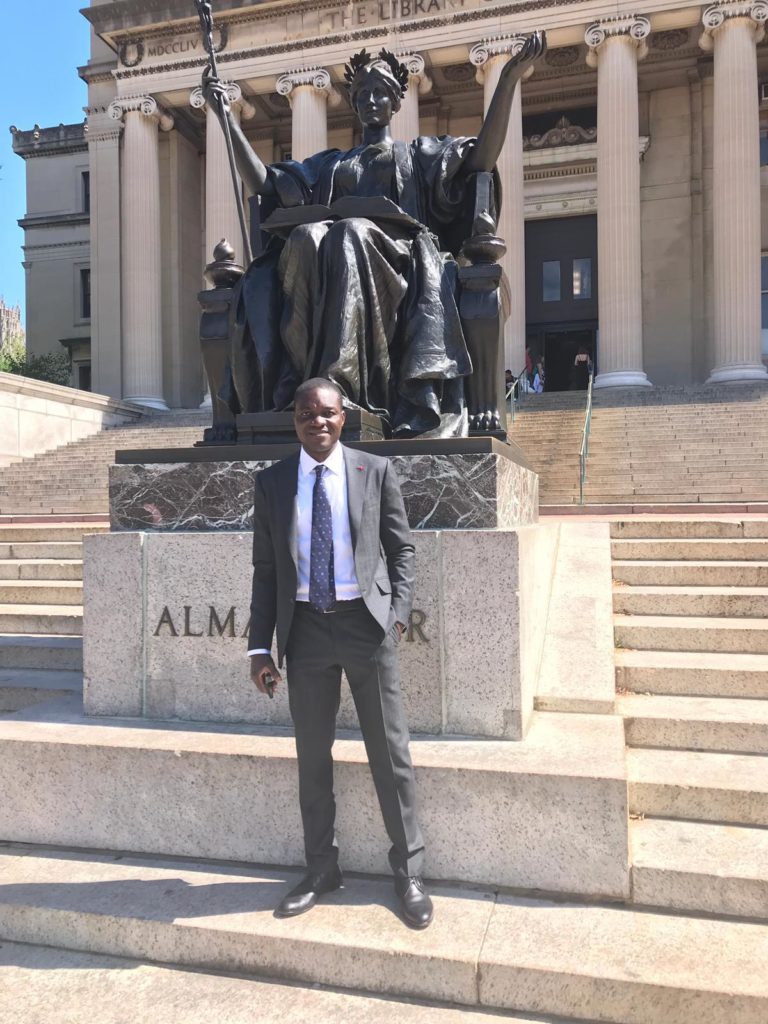
Semiu Oladokun
School: Columbia University
Major: Executive Masters in Technology Management
Semiu is popularly known in the community as Semmy, has contributed immensely to the progress and growth of our community. He is one of our community leaders that shows and demonstrates over the years that leadership is not about a title. It is about commitment, impact, influence, and inspiration.
He is a dedicated member who sacrifices his free time and money in teaching our future generation the knowledge of knowing their creator – Allah – every Sunday.
He enjoys playing soccer and biking.
On behalf of the entire AIMOM community members
We entrust Allah with what you have accomplished and have achieved,
May Allah bring it back to you all when you need it.
We ask Allah to be your Protector, to shower His infinite Mercy on you
We ask Allah to make your degrees beneficial knowledge
May Allah, bless Prophet Muhammad his family, and the entire AIMOM members…Amin
CONGRATULATIONS




